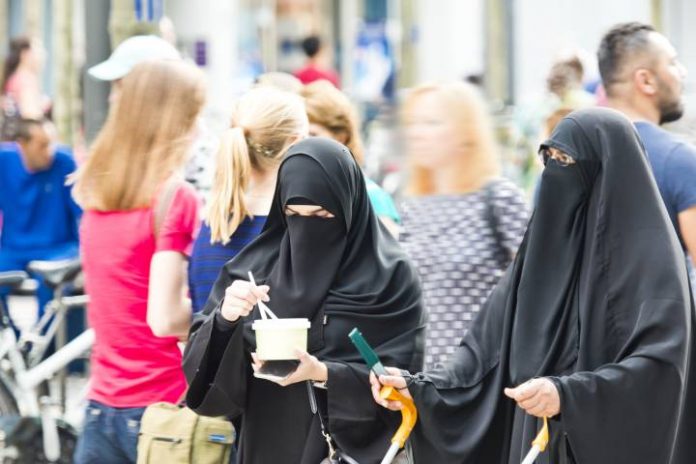Civil liberties groups in Canada are challenging the constitutionality of Quebec’s recent law that bans face-covering in court. The legal challenge argues that the law infringes the freedom of religion of the country’s citizens.
The new law was passed last month and requires that people uncover their faces while receiving public services in certain circumstances.
Filed earlier this week in the Quebec Superior Court, the legal challenge is contesting a specific portion of the religious neutrality law based on Quebec’s Charter of Human Rights and Freedoms as well as the Canadian Charter of Rights and Freedoms
The plaintiffs of the case include the National Council of Canadian Muslims and the Canadian Civil Liberties Association, along with Warda Naili, a Quebec woman who wears a niqab after converting to Islam. She is referred in the legal petition by her birth name, Marie-Michelle Lacoste.
Legal Challenge Alleges That The New Rules Affect Religious Freedom
Speaking at a press conference, Naili said that the new law was giving a boost to anti-Muslim sentiment and added that she has been “living in fear” ever since the law was passed. She also stated that she would be humiliated if she was forced to remain uncovered for longer than necessary.
Yet another plaintiff, Fatima Ahmad, said she had no issues removing her niqab briefly in order to identify herself, noting that she did so currently while obtaining her student ID photo for the bus or while being examined at the doctor’s office.
Ahmad who is a student with the McGill University said that the new law will affect her ability to use public services such as the library or the bus, and also to attend university.
In an affidavit filed by her, Ahmad said that removing niqab in public would make her feel like she was not acting according to her religious beliefs. She also expressed shock that the Quebec government thought it necessary to regulate the religious choices of a small religious minority.
Ihsaan Gardee, executive director of the National Council of Canadian Muslims, also spoke in the press conference pointing out that the new rules were yet another example of politicians looking for electoral gains by targeting the Muslim community.
The state is slated to hold its provincial election in October 2018.
Quebec Government Confident Of Withstanding the Legal Challenge
Quebec Justice Minister Stéphanie Vallée defended the law stating it was essential for communication, identification or security reasons.
According to Vallée the new rules are a well-balanced response to the debate that has been ongoing in the state for the past 10 years with regards to reasonable accommodation necessary for minorities.
Speaking to reporters this week Vallée said that she was confident that the new law will survive the court challenge but did not rule out the possibility that the notwithstanding clause in the Canadian Constitution may be invoked.
Ban Evokes Widespread Criticism
Although opinion polls show that Quebecers support a law on religious neutrality, there have been problems in implementing them.
The face-covering ban has been panned widely. Quebec’s association of municipalities, outgoing Montreal mayor Denis Coderre, mayor-elect Valérie Plante as well as premiers of Alberta and Ontario have criticised the law.
Prime Minister Justin Trudeau commented that governments must not regulate what women can wear or not wear.
Attorney General Jody Wilson-Raybould has stated that the federal government was aware of the legal challenge being filed in Quebec and noted that it was reviewing the situation carefully.
She indicated that she was committed to upholding the rights of all Canadians as mentioned in the Charter of Rights and Freedoms.
Jean-François Lisée, the head of the Parti Québécois a group that advocates even stronger religious neutrality laws called the legal challenge predictable.
Premier Philippe Couillard defended the law stating that it had been crafted in line with both the provincial and Canadian charters. Catherine McKenzie, the plaintiffs’ lawyer, however disagreed noting that there was fairly clear case law from the Supreme Court of Canada that such choices are a violation.



